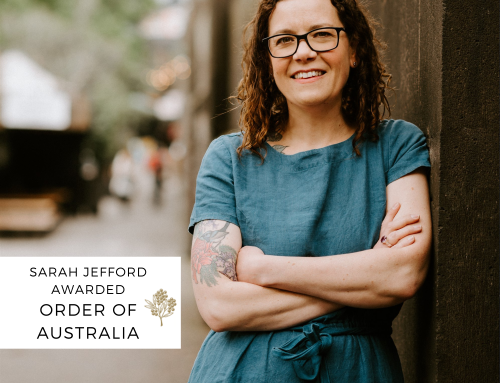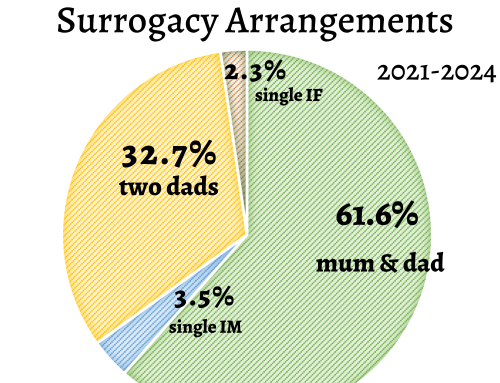Will the surrogate keep the baby?
One of the first questions asked by intended parents considering surrogacy in Australia is “Will the surrogate keep the baby?”
And one of the first questions asked by a surrogate and her partner is “What if they don’t take the baby?”
You may laugh at the irony of those two questions, and certainly many surrogates will scoff at the idea that they want to keep the baby. The fact is, if an intended parent is anxious about the prospect of their surrogate refusing to hand over the baby, there’s not much that can give them 100% certainty that it won’t happen.
So here’s some facts that might help. And whilst they are meant to help, they are in no way meant to diminish the intended parent understandable concerns.
- Most surrogates can conceive and carry a baby with their partner without medical or legal intervention, let alone blood tests, invasive physical examinations, police checks, counselling or involving another couple in their family planning. We don’t want to have any baby, we want to have your baby and give it to you. This might seem a strange idea – why would anyone want to have a baby for someone else? Everything in altruistic surrogacy comes back to the intentions of everyone involved. If the baby was conceived with the intention that it is to be raised and loved by the intended parents, it would feel very strange to consider raising the baby ourselves. In fact, it could feel like grief. As surrogates, we become entirely invested in you becoming parents. If that expectation is not fulfilled, we can grieve for it. So, the idea that we would keep a baby we never intended keeping feels absurd. And this applies to traditional and gestational surrogates – even if we have a genetic connection to the baby, we never intended bringing it home. It’s yours – you can have it.
. - Yes, your baby is gorgeous and delightful and goodness that newborn smell is intoxicating! And still, we don’t want to take it home with us. Some of us are even willing to breastfeed and have skin-to-skin contact with the baby after the birth – and hand it over without any problems. Hormones are amazing, pregnancy and birth is amazing. Still, we don’t want your baby. Our body might react to the baby’s presence, and so it should – we carried baby for 9 months, it would be strange if we didn’t respond. But here’s the thing – the human brain is complex, and humans are capable of complex feelings and thoughts. I can simultaneously love my children and enjoy the time they are in school. Likewise, we can love your baby and have a physical reaction to baby – and still not want to raise it and take it home with us. Actually, we’d rather see you doing all the parenting, because that’s what we always intended. How does it actually feel to hand over the baby – it’s complex, and amazing.
. - Most people have an idea of what their family will look like. It changes over time, of course. But intended parents will understand the desire to have children is partly to do with how you see your future, and your expectations of raising children and when that might happen. Likewise, surrogates also have ideas about what their family looks like. For me, I was adamant that two kids was right for us. We considered adding a third, but it didn’t feel right. Our car fits two kids comfortably, we can holiday with two kids easily, we have goals that include two kids – and not three, or four. So, imagine if that image of family changes because another child arrives, unexpectedly. For me, the idea of a third child was out of the question. The possibility of having to raise surro-baby in our family was terrifying, and this possibility often causes anxiety for surrogates and their partners. I remember cuddles with newborn surro-baby made me anxious – I hadn’t planned on looking after a newborn! Why did they keep handing her to me?!
. - But what about the law? I hear you ask. Australian laws provide that surrogacy arrangements are not enforceable. This means a surrogacy agreement is not binding on a court. At birth, the surrogate and her partner are the baby’s legal parents – for a bit, anyway. If the surrogate decides to keep the baby, by law the intended parents cannot enforce the surrogacy agreement. They can go to the family courts, where the decision of where baby lives would be about the baby’s best interests, not based on the surrogacy agreement. Why is this? Well, because you can’t have a contract on a baby (that’s akin to child trafficking), and you can’t have a contract on a woman’s body. These are two fundamental legal principles that are maintained and are unlikely to change any time soon.
.
In commercial surrogacy arrangements in the US, the chances of the surrogate keeping the baby are 5 times less likely than the intended parents refusing to take the baby. Think that over for a moment. Intended parents are more likely to refuse to take the baby than a surrogate is likely to want to keep it. So, who takes the biggest risk?
. - And then there’s the Birth Certificate. When the baby is born, the surrogate and her partner are listed as the legal parents on the original Birth Certificate. That might feel surreal – trust me, it’s weirder for the surrogate and her partner to see their names listed as parents of your child. To change the Birth Certificate, the intended parents need to apply for a Parentage Order, which transfers parentage from the birth parents to the intended parents. And then, a fresh Birth Certificate is issued with the intended parents listed. You might not agree with the process, or the reasons for it. But given the ‘risks,’ versus the benefits of an altruistic, domestic surrogacy arrangement, a Birth Certificate shouldn’t be your main concern. In fact, you could see it as the ultimate recognition of the woman who brought your baby into the world, and a worthy part of your child’s story. After all, it’s their story too.
If you are an intended parent and are reading this and wondering if the surrogate will keep the baby, that’s ok. But it is something you need to work through before going ahead. There are overseas options that might suit you better. If you do pursue altruistic surrogacy in Australia, you need to work on building trust with your surrogate and her partner, so you can feel comfortable going ahead with her. Address the anxiety in counselling as well. If you are worrying that she might keep the baby, you should not be progressing the relationship any further. Trust is fundamental to altruistic surrogacy. And by trusting, you open yourself up to some amazing possibilities in the relationship and sharing the experience together.
If you are new to surrogacy in Australia, this post will get you started. Sarah has written a comprehensive surrogacy guide, More Than Just a Baby: A Guide to Surrogacy for Intended Parents and Surrogates, which you can purchase now.
Read more about how surrogacy agreements work, and tips on a positive surrogacy journey.
If you are new to surrogacy, you can read about how to find a surrogate, or how to become a surrogate yourself. You can also download the free Surrogacy Handbook which explains the processes and options.
Looking for a surrogate and not sure where to start? We Need a Surrogate – What’s Next? And if you have a surrogate or intended parents, you can get started on the surrogacy process.
You can read a broad overview for surrogacy in Australia and how it works.
You can also book in for a consult with me below, and check out the legal services I provide.








